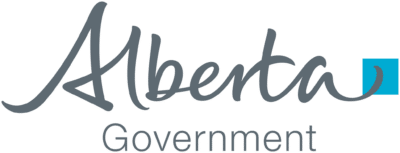Business owners make a multitude of decisions that may have significant implications on their taxes, especially when it comes to compensation from their incorporated business. One of these decisions is how to pay yourself as a business owner; you can choose to pay yourself a salary, in dividends, or a combination of the two. There are many things to consider when deciding the optimal mix other than just taxes. This blog will attempt to cover some of these considerations to help you make the right decision for you and your business.
Paying Yourself a Salary
If one decides to use this avenue, these salary payments become an expense to the corporation, which lowers your corporate taxable income leading to fewer taxes payable. In return, it becomes employment income to the business owner personally. Below are some additional points to consider when paying a salary:
- Contributing to the Canada Pension Plan (CPP): A salary allows you to contribute to the CPP. Based on how long you’ve contributed, this can be an important retirement consideration. However, the business owner will have to pay both of the portions of CPP as they will be considered the employer and the employee, resulting in limited cash available within the corporation.
- RRSP Contributions: A salary will facilitate building RRSP contribution room. This is not the case with paying dividends.
- Income taxes: Income tax will be held from each payment and remitted to CRA on a periodic basis. When personal tax returns will be filed, income taxes will already be paid and therefore, you’ll avoid a surprise lumpsum personal taxes payable. However, salaries require additional administration work in that the corporations will have to set up a payroll account with the Canada Revenue Agency and make timely remittances (CPP & Income tax). Failure to pay these can result in penalties.
- Mortgage Applications: When applying for a mortgage, banks like to see a steady and predictable income. Receiving a T4 salary income will facilitate this.
- Childcare Expenses: A regular salary can support any childcare expenses against lower income spouses’ earned income on their personal tax returns.
Using Dividends
On the other hand, if paying a dividend, the payments are not a corporation deduction and paid after-tax retained earnings. Dividends are classified as eligible or non-eligible, which is dependent on corporate income pools from which they are paid. Some points to consider if choosing this route as below:
- Flexible payment option: A business owner can transfer funds from their corporation to their personal account anytime during the year. A dividend payment is not subject to the reasonableness test. Dividends are usually paid on share ownership percentage.
- No need to register for a payroll account: Dividends are not subject to payroll deductions such as CPP and EI premiums (EI applies only if a shareholder owns less than 40% shares of the company) and therefore, there is no requirement to register for a payroll account. This eliminates the risk of late or missed payroll remittances.
- No contributions to Canada Pension Plan (CPP): Paying dividends removes the need to contribute to the CPP, which reduces corporate and personal expenses. However, this also indicates that the business owner will not be entitled to a fully indexed pension income in retirement.
- Canada dividend tax credit: Paying a dividend can qualify you for the Canada dividend tax credit on the personal tax return which equals a more favorable tax rate. However, if your personal income is so low that the dividend tax credit may not be used, a salary may be more tax efficient.
Is One Option Better Than the Other?
The theory of integration implemented by the legislation indicates that there should be little difference in the overall income tax paid (personal plus corporate tax) either by paying a dividend or salary payments of the same amount. An owner should, in theory, find no advantage with one option over the other.
- When a salary is paid, it reduces corporate taxes but as a result, the business owner will have it taxed at his or her applicable tax personal tax rates.
- When dividends are paid, it does not reduce corporate taxes and as a result, the after-tax amount is paid to the owner. A “grossing up” of the dividend amount in combination with personal tax credits accounts for the corporate tax paid by the business. As a result, dividends are taxed at a preferred rate personally, but when combined with the corporate tax paid it should result in the same amount of tax paid as in the salary.
Other Considerations
- Timely remittances: If making payments on time is a weakness of yours, then it may be easier and less costly to pay using dividends. Wages require the regular, on-time payment of source deductions, or else penalties are charged.
- Bank Financing: If you plan on purchasing a home or need to qualify for a mortgage, it may be better to pay a monthly/semi-monthly salary. Banks like to see steady income more than sporadic dividend payments.
- Maternity/Parental Leave: If having children sometime soon is in the cards and you would like to earn maternity or parental benefits, then it may be better to pay a salary. This will enable you to withhold EI premiums and collect maternity or parental benefits.
- RRSP and Canada Pension Plan (CPP): In order to secure finances for retirement, it may be beneficial to pay a salary that would enable you to build that RRSP contribution room, and contribute to the CPP in order to be entitled to pension payments at a later date.
- Working Income Tax Benefit (WITB): The WITB is a refundable tax credit intended to provide tax relief for eligible working low-income individuals and families. It may be beneficial to pay a small salary from your business to trigger this tax credit on your personal taxes.
What Should You Do?
 Due to the current tax systems in place, the results of calculations show minimal tax savings from one form of compensation to another. The decision can be dependent on many factors and circumstances as well as the corporation’s financial status. In most cases, taking a combination mix of the dividends and salary results in tax advantage of lower effective personal tax rates while also benefiting from CPP and RRSP contributions. It is advisable to consult a tax professional and account for various factors such as household income requirements, other spouse/common-law partners’ personal income, and other tax and non-tax factors prior to deciding on whether to pay a salary, dividends, or a combination of the two.
Due to the current tax systems in place, the results of calculations show minimal tax savings from one form of compensation to another. The decision can be dependent on many factors and circumstances as well as the corporation’s financial status. In most cases, taking a combination mix of the dividends and salary results in tax advantage of lower effective personal tax rates while also benefiting from CPP and RRSP contributions. It is advisable to consult a tax professional and account for various factors such as household income requirements, other spouse/common-law partners’ personal income, and other tax and non-tax factors prior to deciding on whether to pay a salary, dividends, or a combination of the two.
Still have questions? Join Vartika Satija, CPA, CA, on June 2 for Salary Vs Dividends – How to Pay Yourself as a Business Owner, hosted by our friends at AWE. Register for free here.
Disclaimer:
Laws, rules, policies, and regulations change from time to time and the application and impact of laws can vary widely based on specific facts involved. The preceding information is for educational purposes only. As it is impossible to include all situations, circumstances, and exceptions in a newsletter such as this, a further review should be done by a qualified professional advisor. No individual or organization involved in either the preparation or distribution of this newsletter accepts any contractual, tortious, or any other form of liability for its contents or for any consequences arising from its use.
About the author: Vartika Satija
Vartika Satija, CPA, CA is an independent designated chartered professional accountant, striving to work with businesses to educate and provide a financial check-up of their business. Her passion is to partner up with sole proprietors, small businesses, and not-for-profits to provide ongoing guidance towards their unique accounting and tax requirements. Her mission is to ensure that small businesses are well educated and informed about the best tax and accounting practices to be able to manage their cash flows and utilize finances in the best possible ways to grow their business, achieve their financial goals, and make a difference in the community. Her intensive experience includes personal and corporate tax compliance, tax planning, and other business advisory roles. She’s been involved with all sorts of businesses including manufacturing, consulting, professional services, constructions, retail, restaurants, real estate, and many more. Connect with Vartika by visiting her website or on LinkedIn.





